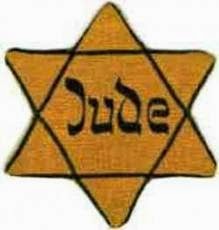When writing this "Omer blog" my intent was to provide something of a commentary, a text that could supplement and enrich the meaningful days which are the Omer. And so, naturally, from now until Yom Hashoah, this Thursday, my posts will turn towards the topic of the Holocaust and the manner in which we relate to this topic here in Israel and beyond. I will open with a piece by Elie Wiesel (A Jew Today pg. 192-195). More to follow in the upcoming days.
I remember two episodes One took place in a train carrying hundreds Jews to their death They were pressed together so that they could hardly move or breathe Suddenly an old rabbi exclaimed, "Today is Simhath Torah Have forgotten what Jews are ordered to do on Simhath Torah?" Somebody had managed to smuggle a small Sefer Torah aboard the train; he handed it to the rabbi And they, began to sing, to sway, since they could not dance, and they went on singing and celebrating the Torah, all the while knowing that every motion of the train was bringing them closer to their end
The second episode took place inside the kingdom of night. In one of the barracks several hundred Jews gathered to celebrate Simhath Torah. In the shadow of shadows? Yes - even there. On the threshold of the death chambers? Yes - even there. But since there was no Sefer Torah, how could they organize the traditional procession with the sacred scrolls? As they were trying to solve the problem, an old man - was he really old? the word had no meaning there - noticed a young boy - who was so old, so old - standing there looking on and dreaming. "Do you remember what you learn in heder?" asked the man. "Yes, I do," replied the boy. "Really?" said the man, "you really remember Sh'ma Yisrael?" "I remember much more," said the boy. "Sh'ma Yisrael is enough," said the man. And he lifted the boy, clasped him in his arms and began dancing with him - as though he were the Torah. And all joined in. They all sang and danced and cried. They wept, but they sang with fervor - never before had Jews celebrated Simhath Torah with such fervor.
For in our tradition, celebration of life is more important than mourning over the dead. When a wedding procession encounters a funeral procession in the street, the mourners must halt so as to allow the wedding party to proceed. Surely you know what respect we show our dead, but a wedding, symbol of life and renewal, symbol of promise too, takes precedence.
Our tradition' orders us to affirm life and proclaim hope—always Shabbat interrupts all mourning, being as it is the embodiment of man's hope and his capacity for joy.
In more general terms, Judaism teaches man to overcome despair. What is Jewish history if not an endless quarrel with God? Pascal phrased it differently "The history of the Jewish people," he said, "is but a long love affair with God." And as in every love affair, there are quarrels and reconciliations, more quarrels and more reconciliations. And yet neither God nor the Jews ever gave up on the other.
... We went on believing, hoping, invoking His name In the endless engagement with God, we proved to Him that we were more patient: than He, more compassionate too. In other words, we did not give up on Him either. For this is the essence of being Jewish: never to give up—never to yield to despair.
Faced with despair, the Jew has three options. He can choose resignation, total resignation - as some of us did one generation ago. Or he can seek refuge in self-delusion - as some individual Jews did. To them assimilation was an option, as was conversion. Yes, there are Jews who arrive at the conclusion that since Jewishness has forever been linked to suffering, they must give it up to protect themselves and their children
But then there is a third option—the most difficult but most beautiful of all. To face the human condition —and do so as a Jew.
...Those who emerged from that ordeal were the stronger for it They were the strongest Jews in history, and their strength, paradoxically, had its source in the Holocaust.

No comments:
Post a Comment